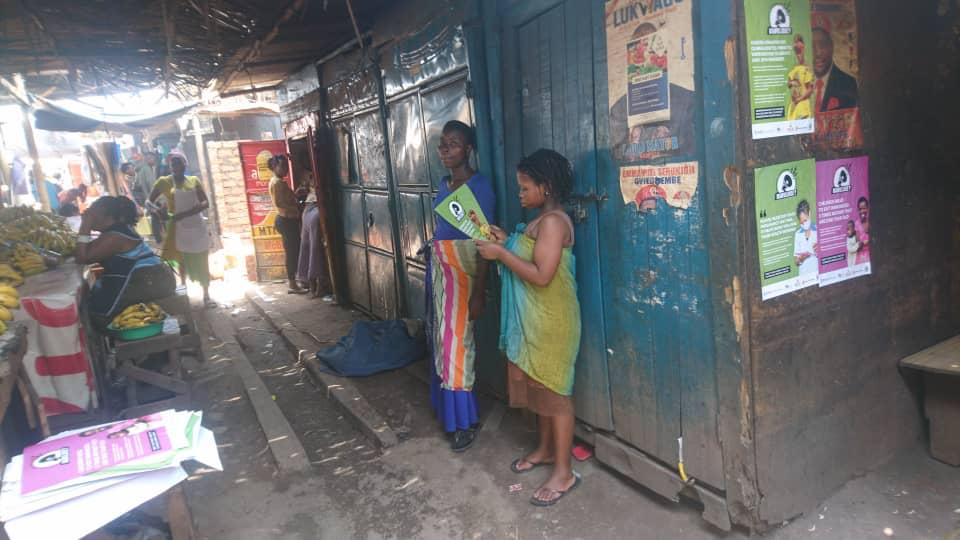Uganda remains one of the countries with high maternal, infant mortality rates and nutrition challenges in the world according to the World Health organization.
As of 2021, the infant mortality rate for Uganda stood at 42 deaths per 1000 live births above the Sub-Saharan Africa average of 27 per 1000 live births; while the institutional maternal mortality rate was 336 deaths per 100,000 live births (UBOS, 2016). Although the maternal mortality rate is better than the sub-Saharan average of 533 deaths for every 100,000 lives, the absolute numbers represent way too many women dying needlessly while trying to bring life into the world.
Although there has been improvement in access to maternal, new-born, and child health services, there’s disparity in access especially the urban poor, including adolescent and young women (AGYW) whose access to health services is still limited by their economic status, majorly because they lack access to information about the availability of services that are affordable or free in most government-aided health centres.
A Lot Quality Assurance Sampling (LQAS) survey that was done by USAID MCHN ACTIVITY in the five divisions of Kampala showed a reduction in the quality of maternal child health. The survey revealed that more mothers were not going for maternal care in time; did not take immunisation seriously, and were not aware of the nutrition guidelines to get their young babies healthy. The survey found out that a big number of children were therefore malnourished.
Based on this background, the USAID MCHN ACTIVITY in partnership with Uganda’s Ministry of Health and the Kampala Capital City Authority (KCCA), initiated a new health media campaign through which they seek to improve the demand-for and utilisation-of maternal child health and nutrition services by the urban poor communities. Dubbed ‘Wawulide?”- which is a Luganda word that translates into the question ‘Have You Heard? – the multimedia campaign has been rolled out in the target communities, using a combination of radio spots and visual media.
The Campaign is expected to increase awareness about Maternal Child Health and Nutrition Services through simple easy to understand and remember messages. It encourages parents and their peers in urban poor communities of Kampala to use the available maternal child health (ANC), immunization, and nutrition services available at communal health facilities to reduce the health risk.
It also intends to improve perceptions around maternal child health (ANC, Immunization, and nutrition), through creation of information platforms where mothers and fathers can realize opportunities and be able to mitigate the challenges that they currently face.
The Urban Health Specialist, the focal point for the campaign at USAID MCHN ACITIVTY noted that the project targets all women of reproductive age, pre-pregnant, pregnant and lactating young women, care takers of children under 5 years in Kampala, especially those in urban poor areas plus the health facilities and health workers that routinely serve them.
“We believe that information is power, the Campaign’s main aim is to inform and sensitize the community about the available MCH-N services. A lot of young women make mistakes during their maternal and child care period not because they want to but because they do not have the right information and do not know where to find it. We also want men, peers and older women, religious and community leaders to be involved in encouraging women to seek maternal and child health services in time to improve the health of the general community, it is only through good health that communities can prosper,” he said.

